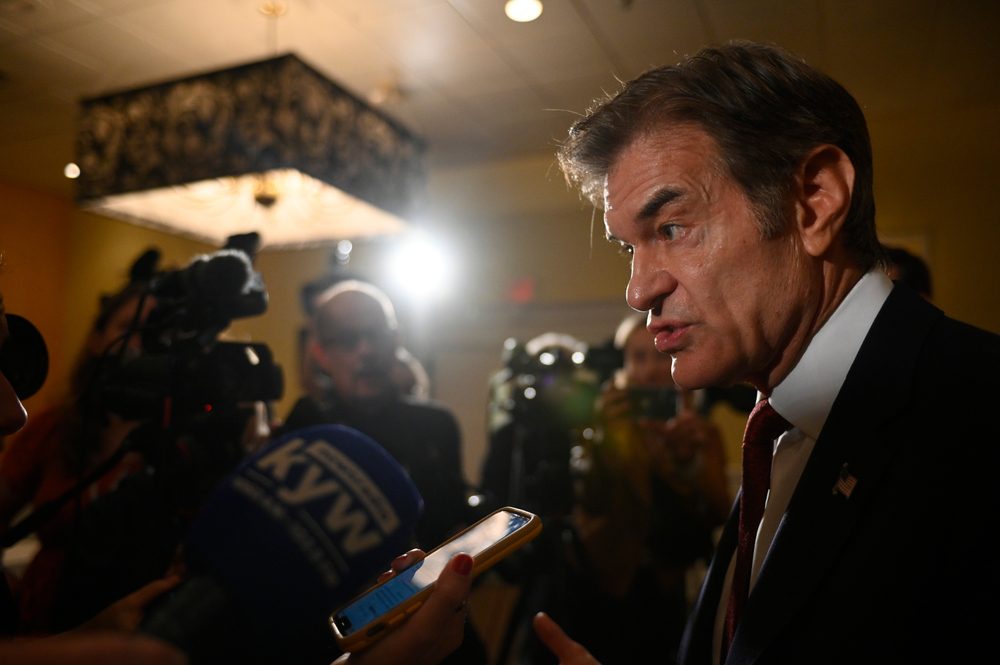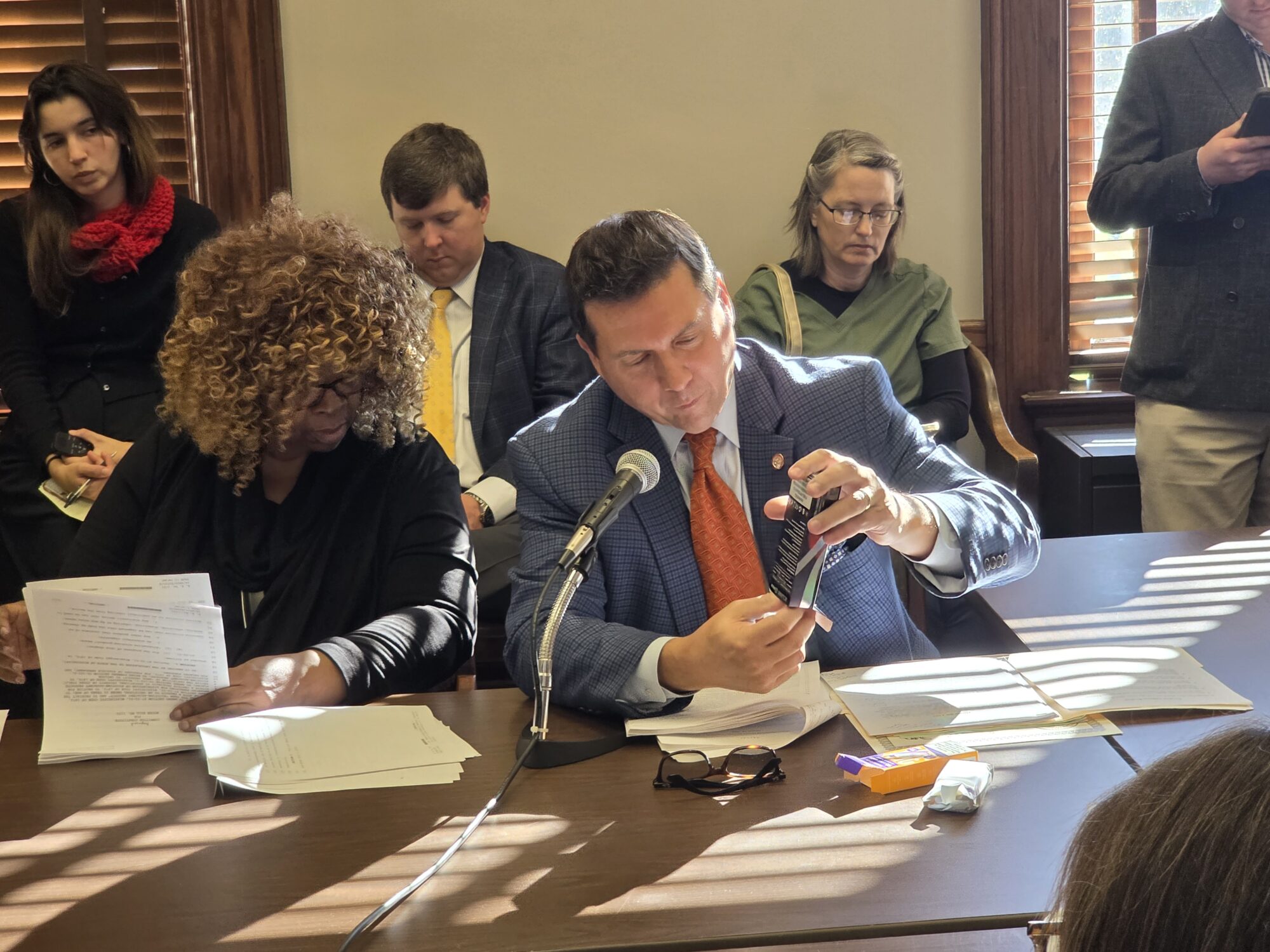
Dr. Mehmet Oz was recently selected as President-elect Trump's nominee to run the Center for Medicare and Medicaid Services (Shutterstock)
- Among the proposals being floated by Trump allies to rein in federal costs for Medicaid are a rollback of the enhanced federal match for people in the expansion population and a move to state block grants.
One of the primary arguments in opposition to Medicaid expansion in Mississippi has been the risk that the federal government could roll back its financial support for the program putting state taxpayers on the line for billions in new spending.
In the last week those risks became something more than theoretical. In reports by The New York Times and The Washington Post, among others, proposals to limit federal spending on Medicaid were linked to Trump advisors and congressional Republicans. The discussions come as the incoming White House grapples with $36 trillion in national debt and impending tax hikes on American workers if Trump’s 2017 Tax Cuts and Jobs Act is not re-authorized this year.
One proposal being floated would reduce the amount the federal government pays for a person who gains eligibility under expansion from 90 percent to the standard rate of contribution for existing Medicaid beneficiaries — in Mississippi, roughly 77 percent.
Such a change would dramatically increase the cost of Medicaid expansion for the state.
Both Kaiser Family Foundation and the Commonwealth Foundation have estimated that approximately 230,000 Mississippians would be enrolled in Medicaid were full expansion to occur. When the Mississippi House of Representatives passed full Medicaid expansion out of its chamber this year, it estimated an annual cost of $7,998 per new enrollee.
Assuming those figures are accurate — both enrollment and cost have dramatically exceeded estimates in every state that has expanded — the total cost of expansion would come in near $1.84 billion a year. The state’s share of 10 percent under the current enhanced federal contribution would amount to $184 million annually.
However, were the enhanced match to be rolled back, the state’s share would rise to roughly $423 million a year, or $4.23 billion over ten years. This would be on top of the near billion dollars a year already spent by the state on the existing Medicaid population.
A separate idea pitched by U.S. Senator John Cornyn (R-TX) would send lump sum block grants to states that are not contingent on how many people are enrolled.
Either of these ideas, brought to fruition, would place considerable strain on the state budget.
What is Medicaid expansion?
Medicaid, as a program, was originally designed to provide access to health insurance for the most vulnerable populations in the country. These included children, pregnant mothers, the disabled and the elderly. Able-bodied adults without dependents were not eligible, with the understanding that they could work and provide for themselves.
When the Affordable Care Act, commonly referred to as Obamacare, was passed it created eligibility for able-bodied adults earning up to 138 percent of the Federal Poverty Level. After a legal fight over the provision, states were not forced to opt-in to the expansion, but could decide for themselves.
In order to induce states to expand, Congress offered an enhanced federal matching rate — meaning the federal government pays more for able-bodied adults on Medicaid than it does for children or the elderly.
The ACA simultaneously created a marketplace for federal subsidized private health insurance plans. Under COVID-era changes, the subsidies for these plans became richer. A person earning between 100-150 percent of the Federal Poverty Level (FPL) could obtain a private plan with no premium, no deductible, and $0 co-pays for primary care visits and generic drugs.
However, under the ACA, a person who becomes eligible for Medicaid by virtue of expansion is no longer eligible for one of these private plans. For that reason, some states, like Georgia, have only committed to partial expansion plans up to 99 percent of the FPL.
This past session, the Mississippi House of Representatives proposed full expansion up to 138 percent of FPL, while the Mississippi Senate proposed a partial expansion akin to that in Georgia.
Could Work Requirements be Back on Table?
In a poll conducted by Magnolia Tribune earlier this year, 90 percent of Republican respondents said they opposed expansion for able-bodied people who refuse to work. The House proposal last session included a call to seek approval of a work requirement, but full expansion would have still taken effect even if the work requirement was not approved by the federal government.
The Senate plan was contingent upon the approval of a work requirement.
Neither was likely to be approved by the Biden administration, which withdrew CMS guidance to states on applying for a work requirement and successfully rescinded work requirement approvals given under the first Trump administration in all but one state — Georgia.
RELATED: No, a Work Requirement for Medicaid Expansion is Not Going to be Approved
To compound the problem, even prior to Biden’s withdrawals of Trump’s work requirements, a federal district court struck down work requirements in Arkansas, New Hampshire and Kentucky, and the D.C. Court of Appeals unanimously affirmed those decisions.
So while the Trump administration may be more amenable to work requirements making a comeback, there could be legal hurdles unless Congress acts to explicitly authorize the requirements.
Could that type of congressional action be on the table? U.S. Rep. Jodey Arrington (R-TX) leads the House Budget Committee. Arrington told reporters last week that Congress should enact a “responsible and reasonable work requirement” for Medicaid.










